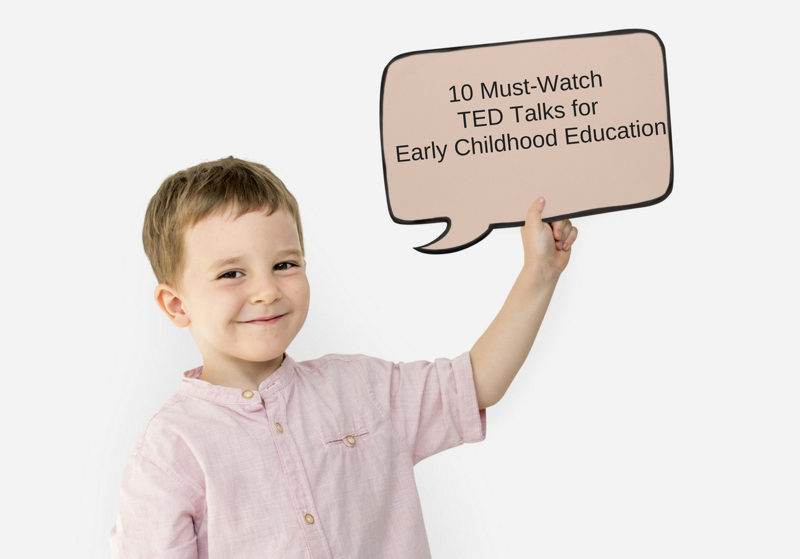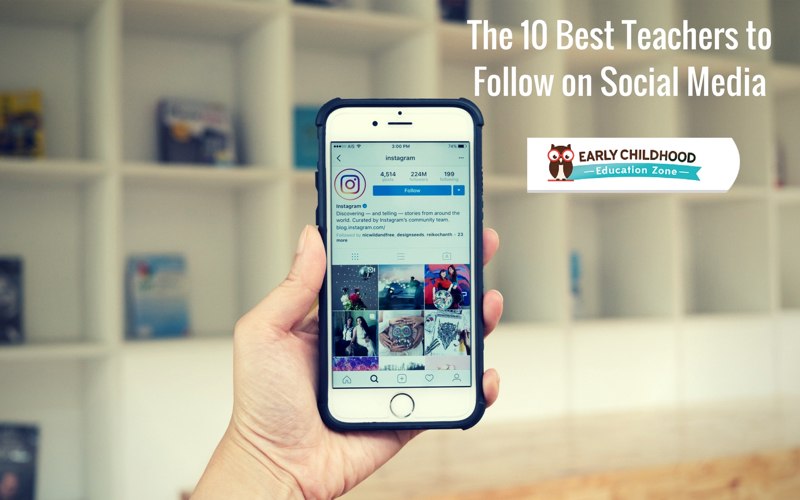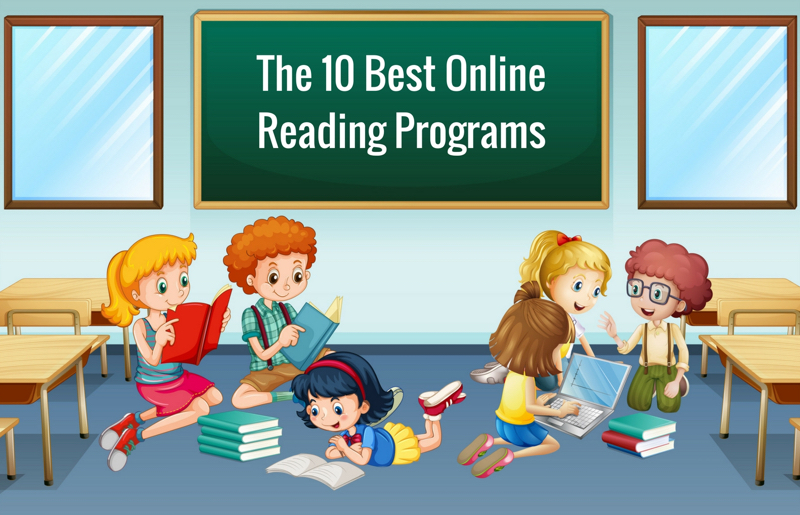10 Must watch TED talks about Early Childhood Education
Find your perfect college degree

TED conferences bring the world’s greatest minds together to share revolutionary progress and exchange creative ideas. Some of the best TED talks have been devoted to ensuring that the next generation embraces the values that TED represents: innovation, creativity, and globalization of information. The following talks are some of TED’s best on education. Any educator or even someone simply with an interest in education would be remiss if he or she did not take a look at these inspiring videos.
Every Kid Needs a Champion – Rita Pierson
After teaching for 40 years, Rita Pierson shares the insights she has gained about how to be an exceptional teacher with the TED audience. With her personal stories and engaging tone, Pierson stresses the importance of creating genuine relationships with students by connecting with them on an emotional level. She insists that every kid needs an adult who believes in him or her. She balks at the notion that teaching is strictly an impersonal 9 to 5 endeavor, instead believing that teachers have a higher calling to shape the lives of the next generation. Her call to action at the end of her presentation is that everyone should believe the same.
Teachers Need Real Feedback – Bill Gates
Bill Gates makes a compelling case for transforming the teaching professions. He insists that one word of feedback, “satisfactory,” is not enough to encourage teachers to become the best in their trade. Alarmingly, the single word “satisfactory” is in fact the only kind of feedback that 90 percent of teachers get. Gates insists that to become the world leader for educational quality, we must adopt a model similar to that of China for giving feedback to teachers (which is #1 in the world for reading, math, and science). More than that, we can leverage technology to get detailed feedback by recording an instructor while he or she teaches.
Building Blocks That Blink, Beep, and Teach – Ayah Bdeir
In 1968, Lego made engineering buildings possible for kids through its simple connectible toy blocks designed to mimic concrete bricks. Calling transistors the concrete blocks of our time, Ayah Bdeir has taken Legos idea a step further by making building transistors possible for those without much knowledge about electronics using her “Little Bits.” Little bit are individual components that can be snapped together using magnets to create little electronic devices such as a confetti blower or a moving, glow-in-the-dark lobster. Ayah hopes that her Little Bits will encourage kids and adults alike to learn about electronics and the way in which circuits work.
Let’s Use Video to Reinvent Education – Salman Khan
Salman Khan describes the power of his website Khan Academy to revolutionize education. Khan Academy began as a series of YouTube videos that he used to tutor his cousins in math. Using his step by step videos, millions of students have been able to learn at their own pace and grasp difficult concepts. Since then, Salman has given up his career as a hedge fund analyst to run his not-for-profit business full time. He’s expanded his website from simply hosting a collection of his videos to establishing a comprehensive curriculum in diverse subjects–all accessible to the entire world for free. He describes how teachers can use Khan Academy to use classroom time more efficiently.
How Schools Kill Creativity – Ken Robinson
Ken Robinson makes the case that the structure of the educational system is sabotaging students by trying to make them all a homogeneous group. He insists that only children destined to be university professors benefit from our current model, while future painters, dancers, musicians, and woodworkers are made to suppress their talents. He argues that in this day and age, a college degree has little meaning because of education inflation. Now, we need more than degrees; we need creativity, and we can help the next generation regain theirs by cultivating their diverse talents instead of squashing them.
The Child-Driven Education – Sugata Mitra
As Sugata Mitra points out, often the most capable teachers are far and few between in the areas where they are most needed. He proposes that the answer to this problem can be unlocked through the power of the internet. Though a series of pilots across the country in areas such as New Delhi, South Africa, and Italy, he found that the physical presence of a teacher is not always a necessity. Children are surprisingly capable of teaching themselves when giving the proper structure. His findings have great potential for the future of education.
Bring on The Learning Revolution – Ken Robinson
Sir Ken Robinson is back for his second TED talk on education riddled with jokes and anecdotes. All silliness aside, true to the tune of his first talk, Robinson calls for a fundamental change in the way schools work. He is convinced that the standardized, one-size-fits-all approach that our schools have adopted is leading us to failure. The solution, he insists, is personalized learning through which each child can have the freedom to develop his or her own talents and interests. It is an idea that sounds like chaos to most people, but in Robinson’s view education reform is a losing battle; instead we need an education revolution.
Three Rules to Spark Learning
Galvanized by the urgency of life that comes from a life threatening illness, chemistry teacher Ramsey Musallam started to rethink the way he was teaching (or “pseudo-teaching,” as he calls it). Now he is on a mission to inspire other educators to redefine their jobs and make the teacher’s primary goal to cultivate curiosity. He gives three rules to do just that: curiosity comes first, embrace the mess, and practice reflection.
Teaching Kids Real Math with Computers – Conrad Wolfram
Everyone hates math, or so it seems. The head of Wolfram Research, Conrad Wolfram, thinks that idea is a function of how we teach math, not the math itself. He argues that the traditional way of teaching math, rote memorization and calculation, is not the way math is done in the real world, and is boring (echoing the cry of many a student). Instead, he proposes that we teach students math through computer programming. This is much more powerful–not to mention incredibly fitting for the technology age in which we live. Real math is about using concepts as tools to solve problems not simply knowing all the multiplication tables.
A Short Intro to the Studio School – Geoff Mulgan
It has been well established by research that different people learn best in different ways. Some learn best by reading, some by hearing, some by watching, and others by doing (or some combination of all of these). In public schools, a lot of emphasis is put on watching, reading, and hearing, while not so much emphasis is placed on doing. The Studio School, a revolutionary school in the United Kingdom, is an environment in which this paradigm is turned on its head, and students primarily learn by doing (and rather successfully at that). Geoff Mulgan shares some of the highlights of the Studio School so far with the TED audience.




